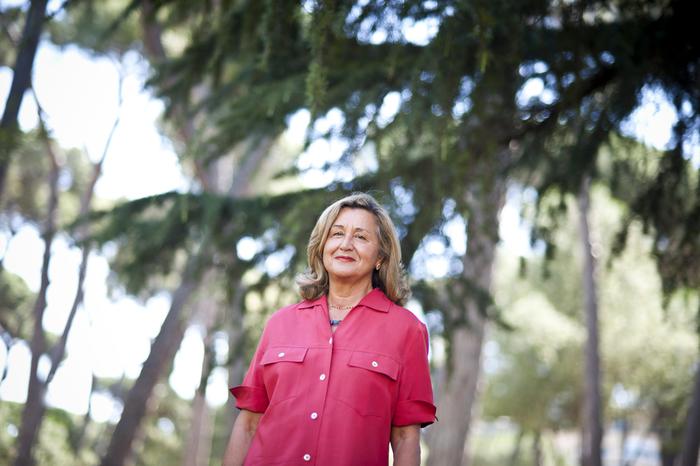07/06/2020 - 4:32
- Clarín.com
- Shows
At 91 years old, Ennio Morricone died , the remarkable Italian composer who was chosen by great film directors, who received two Oscars and, ultimately, entered the history of world cinema.
The author of more than 500 works had suffered a fracture of the femur, after a fall in his home. And in the first minutes of Monday, he died at the Campuos Biomedico clinic in Rome, "with the consolation of faith," according to a note from friends released by the Italian press. His remains will be dismissed in a private ceremony, his family announced.
If you read that this man composed the soundtrack of more than 500 films, you already have reason to be amazed. But, if in addition, among them are some (many) films that entered the category of masterpieces or great classics, admiration grows. And this was Ennio Morricone , who had been nominated five times for the Oscar , but only recently had the satisfaction of receiving him in an honorary condition in 2007 "for his long career . " Until in 2016, at the age of 87, full recognition came, when his soundtrack for Quentin Tarantino's "The Eight Most Hated" took the coveted statuette, which was handed to him by Quincy Jones.
A man who was chosen by Tarantino and Almodóvar ("Atame"), Pasolini ("Theorem", "Salo") and Terence Malick ("Days of Heaven"), and other great directors of the last half century, can already be considered as one of the most notable film music composers in history. "Morricone is the creator of several of the true Italian hymns", praised Bernardo Bertolucci, after having his music for one of his greatest works, that "fresco" of the 20th century that was called Novecento. At the same time, he was called by popular music figures (Mina, Rita Pavone, Chico Buarque) as an unavoidable reference in his arrangements.
Morricone's fondness for music, and specifically for the trumpet, came from a very young age. His own father was a trumpet player. They lived in Trastevere, in Rome, where Ennio - the eldest of five brothers - had been born in 1928. A curiosity: one of his schoolmates Saint Juan Baptiste de la Salle was Sergio Leone, the later famous Italian film director, with who would collaborate intensely. Morricone studied music at the prestigious Santa Cecilia and later joined the institution's orchestra. He came to join a formation with his father and played in hotels in Rome and neighborhoods for Italian troops , about the end of World War II.
Quentin Tarantino and Ennio Morriconein February 2016. (Alberto E. Rodriguez / Getty Images / AFP)
Also very young, he began in composition, initially for vocal and chamber music. His choral pieces, liedes and camera are remembered from that “classic” production, after completing his training as a composer with Goffredo Petrassi. In 1955 he began with musical arrangements for films and with works at the RAI. And an important episode in his training was the seminar he attended in Darmstadt: it was given by John Cage. Morricone was destined to become one of the avant-garde Italian composers (like Luciano Berio), but his progressive move to the cinema - he composed his first soundtrack in 1961 - took him in other directions: it was the music for “Il Federale”, by Luciano Salce.
Three years later, Morricone's services were required by Sergio Leone and Bernardo Bertolucci, Pier Paolo Pasolini and Gilles Pontecorvo . And popularity came with a catchy tune from "For a Fistful of Dollars" (by Leone), with whom he also stood out in "The Good, the Ugly, and the Bad" (1966). Morricone really appreciated his friend, whom he called "a total filmmaker." With Pasolini he worked for the provocative "Saló, or the 120 days of Sodom", which premiered at the Paris Festival a few days after the director's crime.
The consecrated Morricone began to enter teaching in 1970 (composition teacher at the Frosinone Conservatory) and also to participate more frequently in US cinema, being nominated for the first time for the Oscar for the western "Days of Glory ”, From Malicken 1979. But he never wanted to settle in Hollywood , despite the fact that his work was increasingly required. About that work, Morricone wrote that "it is one of my favorite films. Malick came to Rome in 1978, after having chatted for months on the phone thanks to an interpreter. Those conversations led me to the composition of 18 songs, which he selected" .
Ennio Morricone and the Oscar award that he waited for so long and that he finally received in 2016. (EFE)
The following nominations came with Roland Joffe's "The Mission" (surprisingly he did not win it, although everyone highlighted his beauty), with Brian de Palma's "The Untouchables of Elliot Ness" (1988), Barry Levinson's "Bugsy" (1992) and Giuseppe Tornatore's “Malena” (2001). But many consider his best score to be the soundtrack to "Once Upon a Time in America," Leone's latest film. De Palma, meanwhile, turned to Morricone for a very tough "Hearts of Iron", set in the Vietnam War, and for "Mission to Mars" (2000), which did not have as much success as the previous ones.
Morricone also ventured into contemporary music and had some returns to "classical" , while receiving multiple tributes, since that honorary Oscar and the title of Commander of the Order of the Italian Republic (1995), which was awarded to him by the Prime Minister Luigi Scalfaro. At the beginning of June, he was recognized with the 2020 Princess of Asturias Award for the Arts.
Ennio Morricone, in London in 2001. (AP)
But one of those tributes was an album (something strange but striking) in which stars of different genres and different generations appeared under the title "We all love, Ennio Morricone". They were there from Bruce Springsteen to soprano Renée Fleming, from Roger Waters to Metallica. Interviewed by the newspaper El País on the occasion of that album, he referred to such eclectic tastes: "I do not know exactly the reasons that make my music appeal to so many different people. Although I suppose some: for the thematic clarity, harmonic simplicity and a orchestration that many find fascinating. " For his part, Tornatore dedicated the documentary "Glance of Music" to him, in recognition of his work.
Ennio Morricone and Sophia Loren, music and image of a part of the universal cinematography. (EFE)
On one of his most successful compositions - the music for “Cinema Paradiso” - he said that “it gives the emotion it should give, it is not neutral. I can't say it's the most important, but it's true that it has worked better than in other movies. " Another of his reflections: “If a film requires nostalgic music, I compose it. If you need dramatic music, too. Film music does not belong to the composer, it belongs to the film. If there is something about the composer, it is usually something personal, intimate. But what prevails is the need for the story that the film tells ”.
On the other hand, he referred to his concept of creation: "I am both an artist and a craftsman. I use my brain and my feelings to compose, and I do it through technique, mastering the formulas of musical writing." He cited his references as "Bach, Stravinsky and my teacher, Petrassi".











/cloudfront-eu-central-1.images.arcpublishing.com/prisa/KMEYMJKESBAZBE4MRBAM4TGHIQ.jpg)


